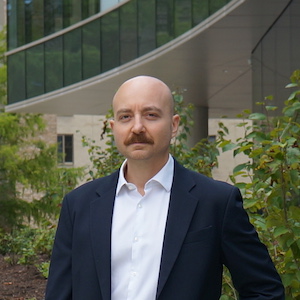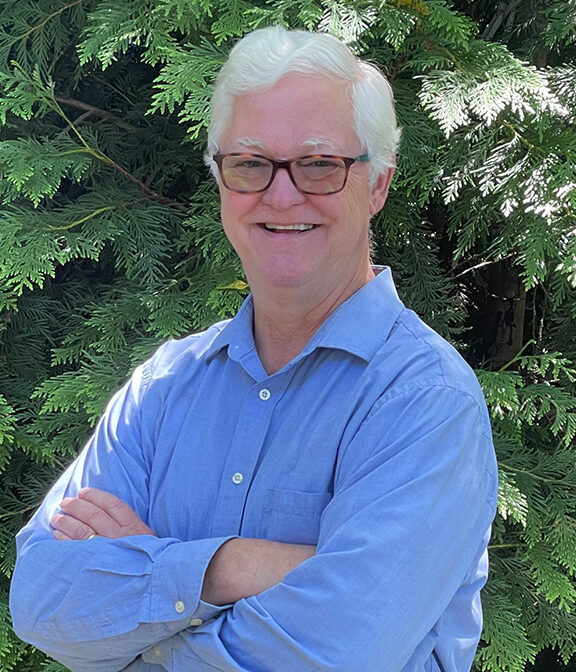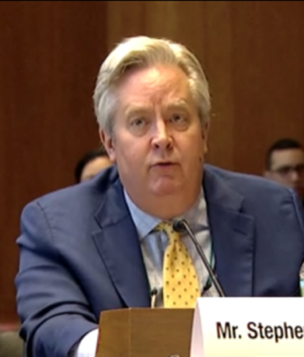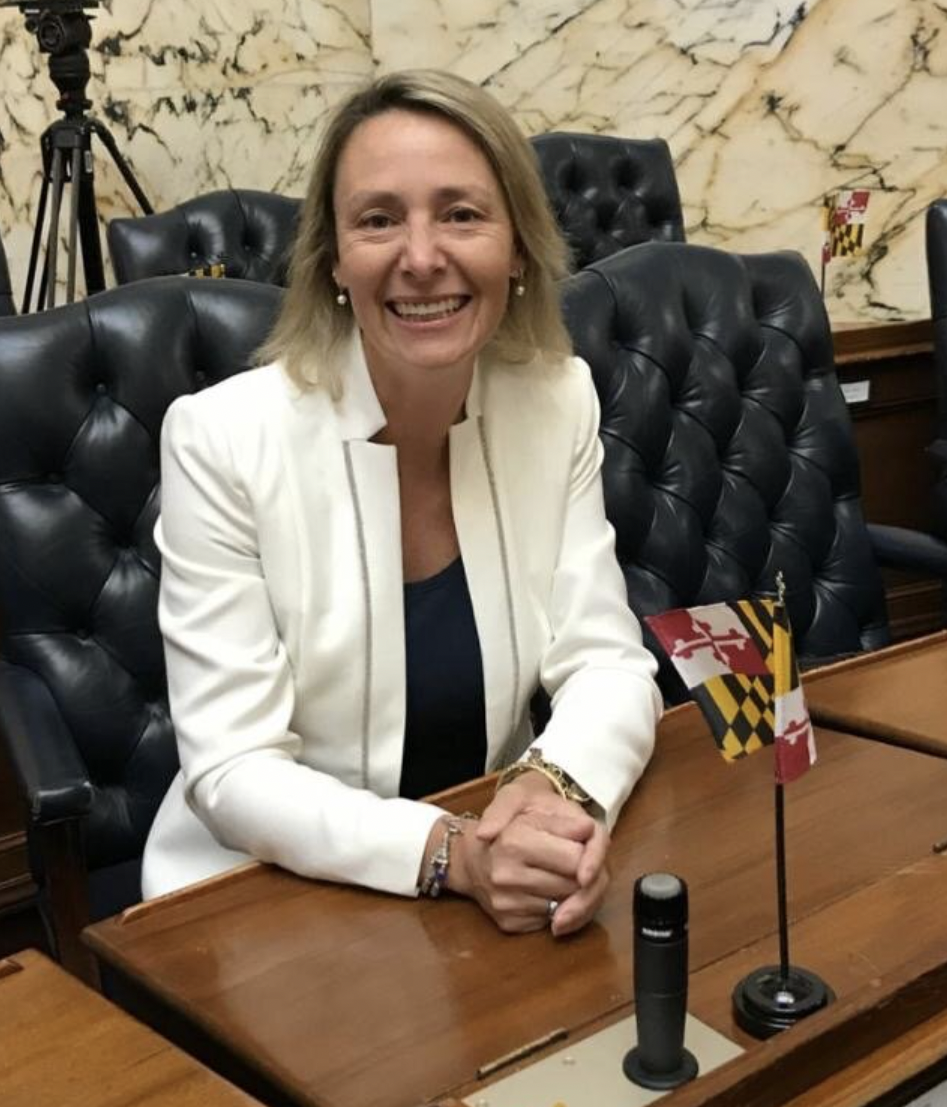Contributions
We interviewed various experts for this research including activists, scientists, academics, and policymakers. Their expertise in PFAS allowed us to conduct this research, and we are grateful to have had the opportunity to speak to each of them. Learn more about our contributors below.

Johanna Adashek is a Visiting Associate Professor and Law Fellow at the George Washington University Law School. She previously clerked for the Environmental Protection Agency in the Air Enforcement Division within the Office of Enforcement and Compliance Assurance. During law school, Professor Adashek published papers on the Paris Climate Agreement and Environmental Rights Amendments. Her current focus is on PFAS and regulation within the U.S. and abroad. In addition to her enthusiasm for PFAS, Prof. Adashek is a flying trapeze enthusiast.

Dr. Stefano Costanzi is a Professor of Chemistry at American University, in Washington DC, with an educational background in both the chemical sciences and international affairs. Dr. Costanzi’s teaching interests focus on two areas: biochemistry and the countering of weapons of mass destruction (WMD), chiefly chemical weapons.
His scholarly work is based on two research lines. The first line revolves around the application and development of computational chemistry strategies to study the interactions between chemicals and living of organisms. Importantly, Dr. Costanzi’s research significantly contributed to defining and expanding the scope of applicability of computational modeling to the study of G protein-coupled receptors (GPCRs), key targets for many of the chemicals that modulate the functions of the human body. The second one revolves around the analysis of gaps in current policies and practices that allow the proliferation of chemical weapons and the conceptualization of solutions and tools to narrow them. Additionally, he is interested in raising awareness on CBRN issues.

Joseph Cotruvo is president of Joseph Cotruvo and Associates, Water, Environment and Public Health Consultants. Consulting and advisory committees include the World Health Organization’s Guidelines for Drinking Water Quality, and numerous oversight panels on drinking water quality, desalination, and recycled potable water reuse. He was the first Director of EPA’s Drinking Water Standards Division after passage of the SDWA, and Director of the Risk Assessment Division in the Chemical Toxics program. They developed comprehensive national drinking water regulations and health risk assessments for microbial contaminants, organic and inorganic chemicals, pesticides, radionuclides, the original regulations for THM disinfection by-products, surface water filtration, and proposed Lead and Copper corrosion control rules. It also initiated Drinking Water Health Advisories.
Joe served for a number of years as EPA member on the NSF International Council of Public Health Consultants that reviews and approves all NSF Int. standards prior to issuance. He retired from EPA in 1998..
Joe served on the Washington DCWater Board of Directors for 8 years and chaired the Water Quality Committee. He works on applications of potable and non-potable water reuse, regulatory policy, PFAS, chemical analysis, water treatment technology, legionella management, risk assessment, metagenomics microbial analyses. He has over 400 publications and presentations on health risk, water quality and safety, water reuse, regulatory policy, small systems, and metagenomics applications in water microbial analyses, and in applications of analytics for tracking coronavirus.
His PhD is in Physical Organic Chemistry from the Ohio State University, and he had post doctoral study in Europe. He is an Adjunct Research Professor, University of Toledo, Department of Chemistry and Biochemistry, and on the School of Green Chemistry and Engineering Advisory Board, and he serves on advisory boards for Ohio State University and the University of the District of Columbia. He was Board Certified in Environmental Sciences by American Academy of Environmental Engineers and Scientists, and recipient of their Science Award (2019). He also received the Walter Snyder Award from the National Environmental Health Association, and NSF International.

Pat Elder is the Director of Military Poisons. Military Poisons works to expose the military’s role in PFAS contamination; to bring together health, peace, environmental, social, and economic justice groups; and to advocate for action, legislation, and cleanup.
Pat is internationally recognized for his work on per-and poly fluoroalkyl substances, (PFAS). He has written more than 300 articles on this issue. See www.militarypoisons.org Pat has been focused on the understudied role of PFAS exposure from food since 2018. Pat believes there is too much emphasis on PFAS levels in drinking water, with too limited a focus on PFAS exposure from food, particularly seafood.
Elder and his associates with Military Poisons have tested surface waters flowing from 20 military bases and have reported dangerous levels of the toxins in the rivers. Pat has tested seawater, crabs, oysters, and fish and found levels of the cancer-causing compounds that are millions of times greater than levels allowed in drinking water, Pat argues that the DOD dictates environmental policy in the United States to avert staggering financial liability for its environmental crimes.
Pat’s writing appears in Truth Out, L.A. Progressive, Covert Action, Global Geneva. Elder’s work has also been covered by NPR, USA Today, The Washington Post, Democracy Now, and Education Week.
Pat holds an MA in government from the University of Maryland. He has four grown children and he has been married to his wife Nell, for 33 years. They live in St. Mary’s City, Maryland.

Stephen Harper is a respected consultant in the field of environment, energy and sustainability. Steve served for nearly 25 years as a government affairs professional at Intel Corporation, ending as Global Director of Environment, Energy and Sustainability Policy. In that capacity, he was responsible for advising senior management and leading company influencing efforts on a wide variety of topics, ranging from climate change and chemicals management to energy efficiency, water policy and the role of Intel’s products in helping meet society’s toughest sustainability challenges. He helped found the Sustainable PFAS Action Network (SPAN). He was also a co-founder of the Digital Climate Alliance (DCA), an industry consortium focused on promoting the climate change solutions contribution of digital technologies. Harper serves or has served on a number of outside boards (including the Energy Foundation, Energy Foundation China, the Chesapeake Conservancy, the Center for Innovation in Conservation, and the Center for Environmental Policy at American University). Prior to Intel, Harper served in senior positions at Amoco Oil Company and the US Environmental Protection Agency (EPA). Harper was a Vice President at ICF Consulting and a Senior Project Manager at the California State Coastal Conservancy. Stephen has a Bachelor’s degree from the University of Colorado, where he graduated with highest honors. He also has a Master’s in International Affairs from Princeton University, an MBA with honors from the University of Chicago, and has conducted graduate studies in city and regional planning at the University of Pennsylvania

Sara Love first was elected to the Maryland House of Delegates in November 2018. She serves on the Environment & Transportation Committee, and two of its subcommittees, Motor Vehicles & Transportation, which she chairs, and Environment. For the last three years she has chaired the Montgomery County House Delegation Land Use, Transportation and Public Safety Committee. In 2019 Sara was appointed to the Chesapeake Bay Commission and in 2023 became the Chair of the Maryland Delegation. She also serves on the Maryland State Advisory Committee to the U.S. Commission on Civil Rights.
Prior to her election to the Maryland House, Sara was the Public Policy Director for the ACLU of Maryland, where she led their policy and legislative work. During that time, she worked on many issues including reproductive rights, racial justice, public funding for public schools, policing reform, criminal justice reform, saner drug policies, technology and privacy, the First Amendment, open government, and voting rights.
Before working for the ACLU, Sara served as the General Counsel and Legal Director of NARAL Pro-Choice America where she worked on federal reproductive rights policy and led a staff to support affiliates across the country working on state policy. She also spent several years out of the workforce, raising her two children.
Sara graduated from Princeton University and Northwestern University School of Law.

Shortly after joining Potomac Riverkeeper, Inc. in 2009, Brent Walls now works as the Upper Potomac Riverkeeper and is responsible for defending the public trust of the rivers and streams in the Upper Potomac by advocating for clean water and ensuring the the virtues of the Clean Water Act are enforced. Brent Walls has been an advocate for clean water for over a decade. With an Environmental Science background in fresh water ecology, Brent has brought a valuable scientific perspective to Potomac Riverkeeper since 2009. His experience in water quality sampling has ensured defensible enforcement actions and has been a unique advising asset with local watershed groups. Brent’s love of maps and proficiency with Geographical Information Systems has inspired the development of Water Trail maps in the Upper Potomac and has provided PRK with valuable interactive web maps and the creation of a mobile application to report water pollution.